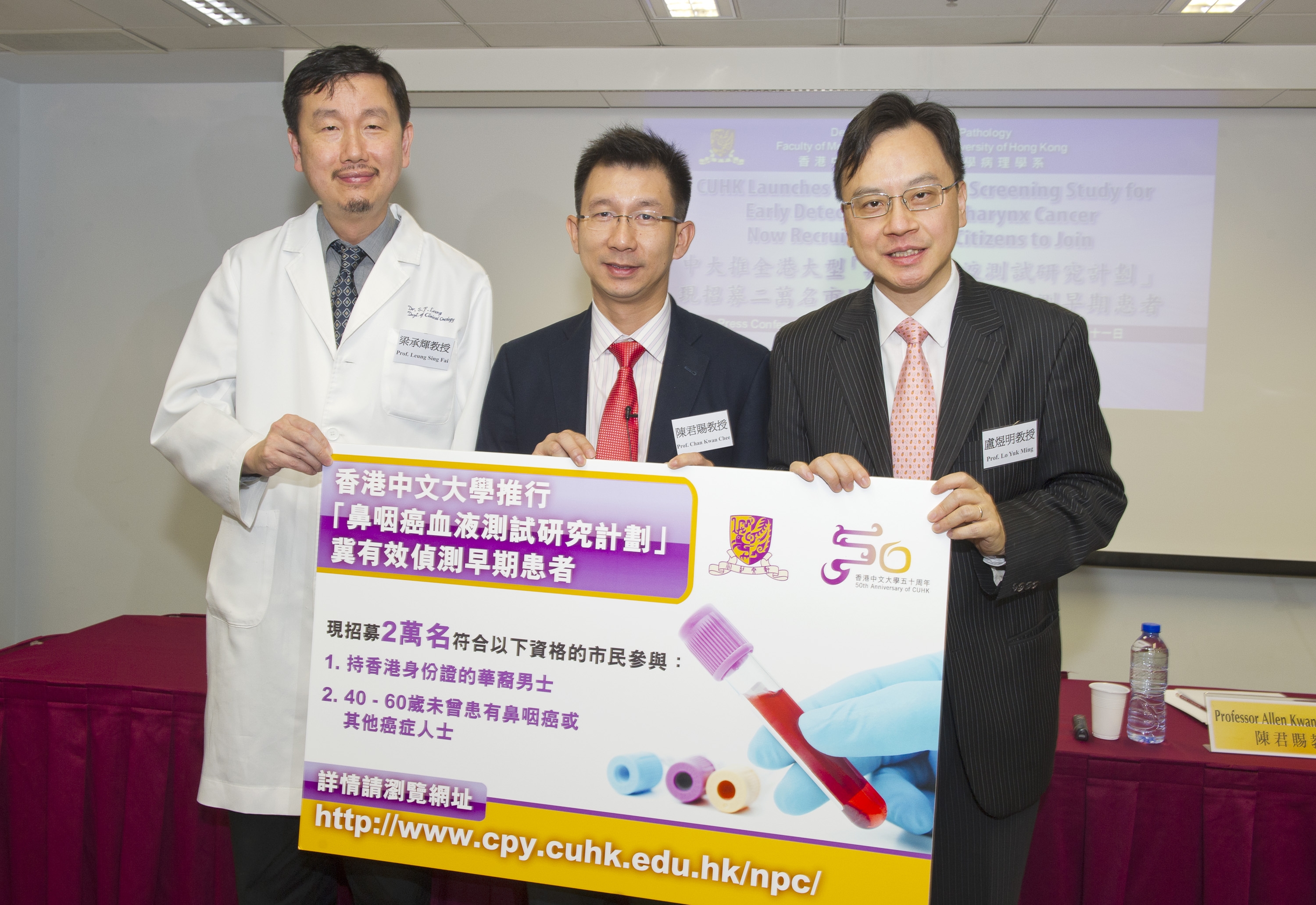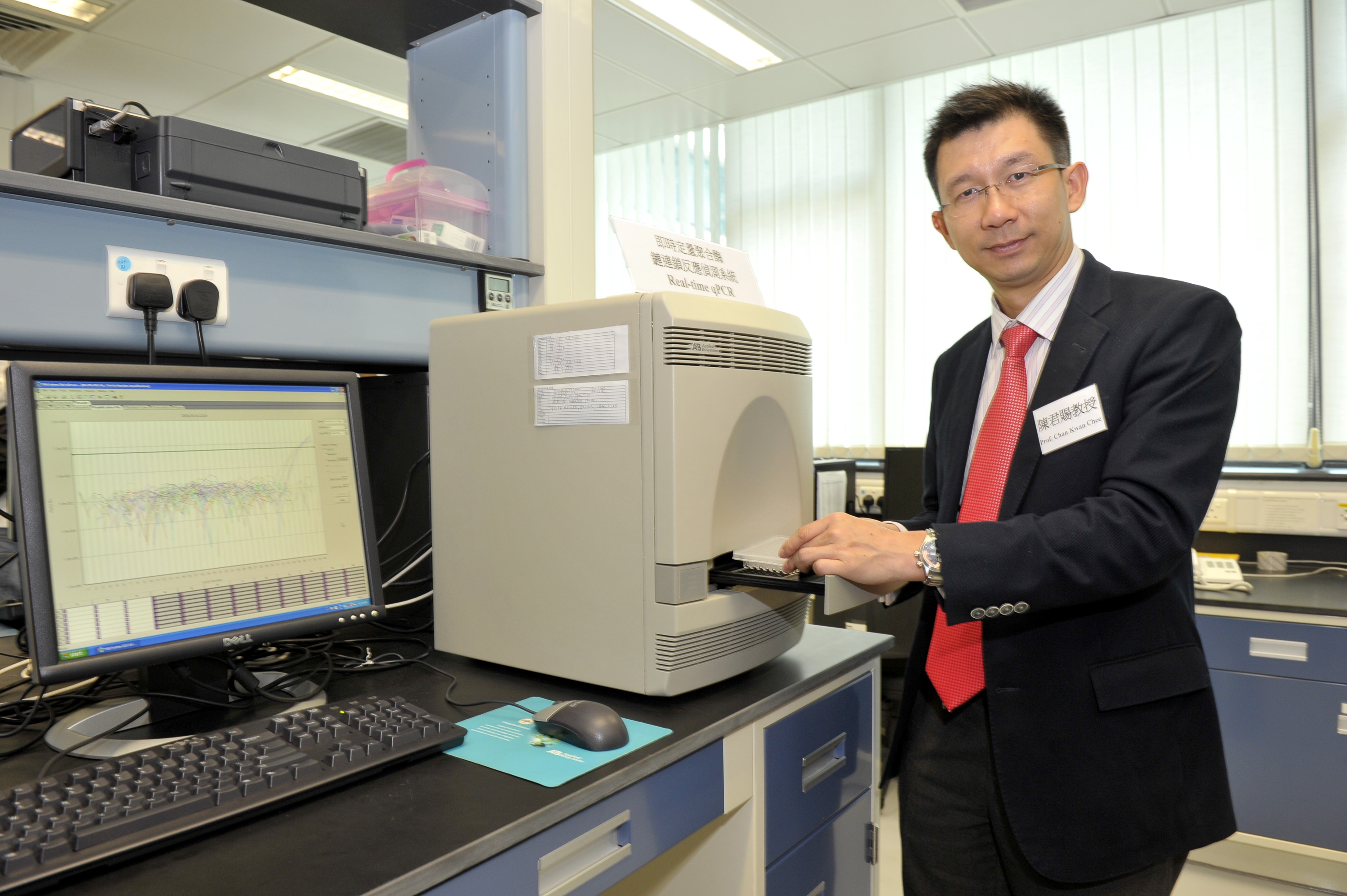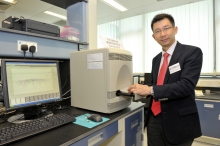CUHK
News Centre
CUHK Launches Territory-wide Screening Study for Early Detection of Nasopharynx CancerNow Recruiting 20,000 Citizens to Join
Nasopharynx Cancer (NPC) is a common type of cancer in Hong Kong and in other parts of Southern China. As symptoms are not obvious at early stages of NPC, 70% of the patients presented with advanced cancers[1], for which more intensive treatment is required with more severe treatment-associated side effects. A lower 5-year survival rate is also expected. Despite therapeutic advancements of NPC in the past decades, early diagnosis remains the most important factor for improving treatment outcomes. The Department of Chemical Pathology at The Chinese University of Hong Kong (CUHK) developed an innovative DNA-based blood test in 1999 for the detection of NPC, and also conducted a pilot study since 2008 which successfully identified patients with early NPC through the blood test.
Early NPC cases successfully screened with blood test
The pioneering test developed by CUHK identifies NPC patients through the analysis of cancer-derived DNA in blood plasma, with an accuracy of >95%. This is one of the most accurate existing blood tests for cancers. To investigate if the blood test is useful for identifying early asymptomatic NPC cases, CUHK has carried out a pilot study since 2008 for the screening of NPC. Over 1,300 asymptomatic individuals aged 40 to 60 were screened. Sixty-nine subjects with initial positive results were further investigated with other tests including nasal endoscopy. Three patients with early NPC were eventually identified and all of them had fully recovered after treatment without recurrence.
Large-scale Study to verify effectiveness of universal screening
To further affirm the effectiveness of this DNA-based blood test for early NPC screening, and with an ultimate aim of improving overall survival rate and reducing recurrence rate, the CUHK research team will launch a large-scale NPC blood screening study on 14 July, recruiting 20,000 Chinese male subjects aged 40-60 and without NPC symptoms in the next 3 years to receive the test.
Prof. Allen K.C. Chan, Professor, Department of Chemical Pathology at CUHK remarked, ‘The key objectives of this large-scale study are: to confirm the effectiveness of DNA-based blood test for detecting early NPC cases; to identify more early NPC patients for timely treatment; to estimate the health economics of a community-based screening programme, whether the treatment cost saved can compensate for the screening cost; to evaluate if it is possible to predict individuals’ risk of NPC development through the DNA-based test. Overall speaking, this study will generate important information regarding the possible benefits and cost-effectiveness of a universal NPC screening programme in a region with high incidence of NPC.’
The study is expected to lay milestone on NPC management strategy in the South Chinaregion. In addition to the generous funding support from the Kadoorie Charitable Foundation, the study also received support from other organizations on venue provision, publicity and subject recruitment. In view of the large scale of the research, all interested parties are welcome to join. Interested and eligible citizens or groups may visit the following website for more details of the study: http://www.cpy.cuhk.edu.hk/npc/.
[1] Hong Kong Cancer Registry, Hospital Authority. URL: http://www3.ha.org.hk/cancereg/npc_2010.pdf. Assessed on 18 June 2013.
(From right) Prof. Y.M. Dennis LO, Chairman, Department of Chemical Pathology; Prof. Allen K. C. CHAN, Professor, Department of Chemical Pathology; and Prof. LEUNG Sing Fai, Clinical Associate Professor (honorary), Department of Clinical Oncology, CUHK introduce the territory-wide screening study for early detection of nasopharynx cancer.
CUHK professors express sincere thanks to the representatives of various supporting organizations which facilitate the screening study.







